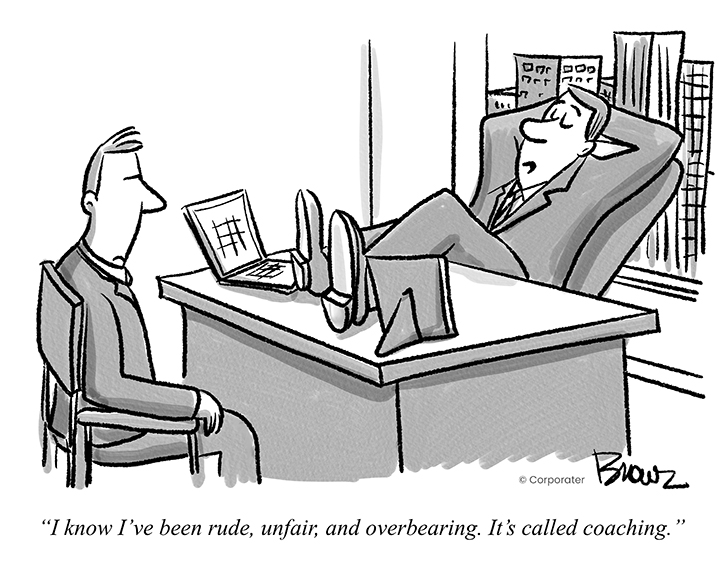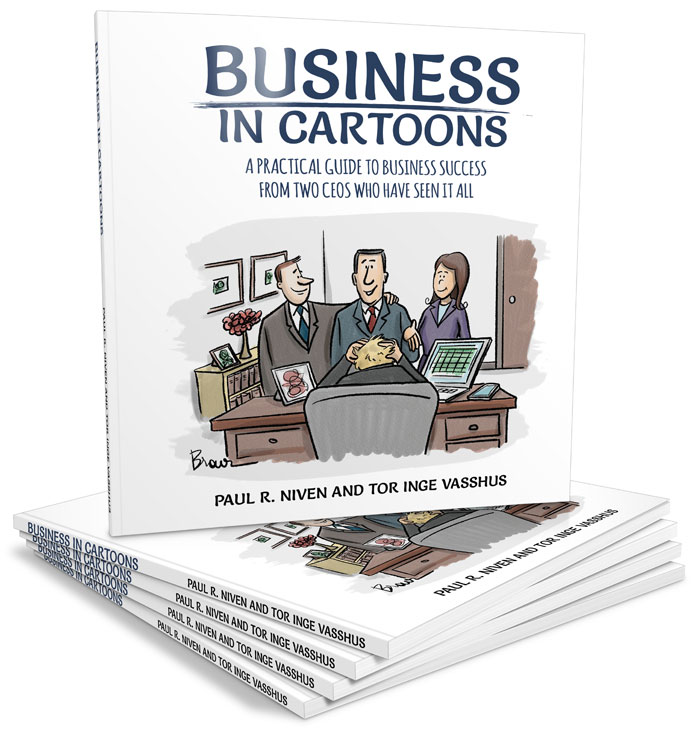
Not long ago one of us (Paul) visited a pharmacy in his town and came across a tall, late middle-aged man with gray hair, mean eyes, and a menacing expression on his face. Think Mr. Gower at the beginning of the movie It’s a Wonderful Life. Turns out this gentleman was the store manager. I was at the cash register, paying, when he marched over to the cashier, thrust a huge tub of hand sanitizer in her palm and commanded (in front of all the customers): “Use this … you know why!” And in case you’re wondering, this was before the Covid-19 pandemic. Then he left from behind the counter and barked: “Oh, it’s mister I can’t work on Tuesdays” to some hapless teenage worker who was cleaning the floor. The employee muttered a somewhat pathetic, “What?” to which the manager replied, “Mister I can’t work on Tuesdays. Thanks for gracing us with your presence today.” The obviously disgruntled employee mumbled something to himself and skulked off with his mop. That must be a fun place to work, huh?
The sad part is that it’s not that different from many workplaces in our fast-paced world that often place a premium on speed and “getting things done” over respect and courtesy. Incivility is on a rapid ascent in the modern workplace, with the share of employees who report being treated rudely by colleagues at least once a month increasing from 49 percent in 1998 to 62 percent in 2016. Chances are you’ve probably witnessed, experienced, or (difficult as it is to admit) committed an uncivil act in the last thirty days. Hypotheses abound to explain the uptick: the use of email replacing face-to-face communication (it’s always easier to be rude when hiding behind a cyber curtain), overburdened managers taking their frustrations out on employees, simmering culture clashes due to globalization, and many others. While the causes aren’t always clear, there is little doubt about the consequences.
It’s not just someone’s pride or ego that takes a beating when subjected to incivility. Performance suffers commensurately. Thirty-eight percent of those who were treated poorly at work said they intentionally decreased the quality of their work going forward. Additionally, a whopping 78 percent said their commitment to the organization had decreased. And, echoing my encounter at the drugstore, consumers are less likely to purchase from a company they perceive as uncivil, regardless of whether the rudeness is directed at them or employees. Here are a few tips to stop incivility from gaining a foothold in your workplace.
- Prevent it from starting in the first place
Make civility and treating others with respect and dignity a core tenet of your culture, and interview for it with prospective employees. Check references carefully, ask questions that will provide hints of the person’s true proclivities, and never underestimate the power of intuition. If something doesn’t feel right, it probably isn’t. - Wield your “power” carefully
If you’re in a position of authority, studies have demonstrated that regardless of how kindly and empathetically you’ve acted in the past, enhanced power can lead you to exercise less empathy, exploit others, and focus on your own needs first. Be cognizant of this possibility and engage in the thought exercise of imagining the kind of person you want to be, how you’d like to be viewed by others, then ensure your behavior is consistent with those desires. Humility goes a long way and allowing others to respectfully challenge your thinking can be a triple win — for you, them, and the organization in the form of more innovative thinking. - Provide tools to help people
In one survey, 25 percent of those who were asked why they were uncivil blamed the organization for not providing the skills they required. This is easily remedied with training on giving and receiving feedback respectfully, how to handle difficult conversations, and coaching on constructive ways for dealing with stress.
We spend a third (or more) of our lives at work. By following just a few simple steps we can ensure those hours lead to a sense of satisfaction and fulfillment, rather than humiliation, fear, and contempt resulting from toxic interactions with jaded bosses and colleagues.
